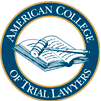Who Can File a Wrongful Death Lawsuit in North Carolina?

If you’ve lost a loved one and someone else is to blame, you may decide to pursue financial compensation through a wrongful death claim. But who has the right to file a wrongful death lawsuit in North Carolina? Under state law, only the personal representative of a decedent can do so. A North Carolina wrongful death attorney from The Law Offices of John Drew Warlick, P.A., can review your situation, determine if you have standing to file a wrongful death suit, and help you seek accountability for your loved one’s death.
For three generations, our firm’s attorneys have worked tirelessly to serve the people of Jacksonville, NC, and the surrounding communities. We focus on providing our clients with legal assistance when they need it the most. We strive to make ourselves available to you whenever you need us and to do whatever it takes to get justice on behalf of your departed loved one.
If you’re looking for accountability for your loved one’s death and have questions about pursuing a wrongful death claim, contact The Law Offices of John Drew Warlick, P.A. today. We offer free initial case evaluations and look forward to discussing how our law firm can help you and your family seek justice and compensation.
Contents
- Who Can File a Wrongful Death Lawsuit in North Carolina?
- What Is a Wrongful Death Lawsuit?
- How Is the Money Distributed for a Wrongful Death Claim?
- How Do You File a Wrongful Death Lawsuit in North Carolina?
- What Is North Carolina’s Wrongful Death Statute?
- What Are Possible Causes of a Wrongful Death?
- How Do You Know If You Have a Wrongful Death Claim?
- Do I Need a Lawyer to File a Wrongful Death Lawsuit in North Carolina?
- How Long Do I Have to File a North Carolina Wrongful Death Claim?
- Contact the Law Offices of John Drew Warlick, P.A., Today
Who Can File a Wrongful Death Lawsuit in North Carolina?
Under North Carolina’s wrongful death statute, only a decedent’s personal representative may file a wrongful death lawsuit. The personal representative is usually the executor or administrator of the decedent’s estate. Sometimes a decedent does not leave a will nominating an executor, or no estate is opened after a decedent’s death. In those cases, the decedent’s family can petition the court to appoint a personal representative to pursue the wrongful death claim.
What Is a Wrongful Death Lawsuit?
A wrongful death lawsuit is a legal claim that arises when a person’s death is caused by another party’s negligence, legal fault, or criminal act. Common examples include medical malpractice, car accidents, and acts of violence.
Wrongful death claims do not require a criminal prosecution against the party or parties who caused the decedent’s death. However, if an at-fault party is criminally culpable for a decedent’s death, they can also face a separate civil wrongful death lawsuit.
A wrongful death claim allows the surviving family members of a decedent to recover financial compensation for both the financial and the emotional losses they have incurred because of the decedent’s passing. A wrongful death claim can arise from the same circumstances that would have given the decedent the right to pursue a personal injury claim had they survived.
Specifically, a wrongful death lawsuit can provide compensation for losses, including:
- Medical expenses incurred to treat a decedent’s last injury
- Conscious pain and suffering endured by the decedent before their death
- Funeral and burial expenses
- Loss of the decedent’s income and economic contribution to the family
- Loss of growth of the value of the decedent’s estate
- Loss of the decedent’s services to their household
- Loss of the decedent’s affection, companionship, society, and advice
In addition to compensation for these losses, a wrongful death lawsuit may also result in an award of punitive damages. Punitive damages do not compensate for losses but instead punish a liable party for reckless, willful, or malicious conduct. Punitive damages are meant to deter others from engaging in similar behavior in the future.
While the decedent’s personal representative is responsible for pursuing a wrongful death claim, any financial recovery goes to the decedent’s heirs, such as the decedent’s spouse, children, or parents.
How Is the Money Distributed for a Wrongful Death Claim?
North Carolina’s wrongful death statute outlines how compensation will be issued. When the wrongful death claim recovers compensation, that money first gets distributed to the decedent’s estate to reimburse it for the cost of pursuing the claim. Then, it may be used to pay attorney fees. The remaining financial recovery does not become an asset of the estate, except for compensation recovered for funeral and burial expenses and reasonable final medical expenses. However, the law limits the estate’s recovery of medical expenses to $4,500 and 50 percent of the total financial recovery minus attorney fees.
Any remaining compensation gets distributed according to North Carolina’s Intestate Succession Act, which establishes the rules for distributing assets to a decedent’s surviving spouse and family members. Compensation will first be given to the spouse and children. When there is no surviving spouse, the victim’s children may split the award. If there are no surviving children either, other family members who may receive the money include grandchildren, parents, siblings, grandparents, and aunts or uncles. The amount that surviving family members can recover will depend on who else may be owed part of the compensation.
Surviving Spouse
Under the Act, a surviving spouse may recover:
- If the decedent has one surviving child or any lineal descendant (grandchildren, great-grandchildren, etc.) of one deceased child:
- When their personal property does not exceed $60,000, all the personal property
- Otherwise, $60,000 plus half of the remaining balance of personal property
- If the decedent has two or more surviving children or one surviving child and descendants of one or more deceased children:
- When their personal property does not exceed $60,000, all the personal property
- Otherwise, $60,000 plus one-third of the remaining balance of the personal property
- If the decedent has no surviving descendants but has one or more surviving parents:
- When their personal property does not exceed $100,000, all the personal property
- Otherwise, $100,000 plus half of the remaining balance of personal property
- If the decedent has no surviving lineal descendants or parents:
- All the personal property
Surviving Children and Grandchildren
A decedent’s surviving children will receive the remaining balance of the wrongful death award. If a child died before the deceased and left descendants, those descendants would split the deceased child’s share. The children will get the entire award when there is no surviving spouse.
Surviving Parents, Siblings, Grandparents, Aunts, and Uncles
If a decedent had no children, then their surviving parent(s) can receive the balance of the award. If a decedent had no children and left no surviving parents, then the decedent’s sibling(s) and lineal descendants of deceased siblings will receive the balance of the award.
If a decedent leaves no children, parents, or siblings, their paternal grandparents will receive one-half of the balance of the award and their maternal grandparents the other half. However, if both paternal grandparents have passed away, then the decedent’s paternal aunts and uncles and their lineal descendants will share one-half of the balance. In cases where both maternal grandparents have passed away, then the decedent’s maternal aunts and uncles and their lineal descendants will share one-half of the balance.
How Do You File a Wrongful Death Lawsuit in North Carolina?
North Carolina law allows only the decedent’s personal representative to file a wrongful death lawsuit. In most cases, the executor or administrator of a decedent’s estate becomes the personal representative. To file a wrongful death lawsuit in North Carolina, a surviving family member or another party must petition the court for appointment as the executor or administrator of the decedent’s estate. In most cases, the person named in the decedent’s will petitions for appointment as executor. If the decedent did not leave a will, a family member or another interested party can petition for appointment as administrator of the estate.
After receiving an appointment from the court, the executor or administrator can then file a wrongful death suit. They will typically file in the county where the decedent lived before their death or where the events that caused their death occurred.
A North Carolina wrongful death lawyer can help you navigate this process, negotiate a fair settlement for your family’s losses, and take your case to court when necessary.
What Is North Carolina’s Wrongful Death Statute?
North Carolina’s wrongful death statute (N.C. Gen. Stat § 28A-18-2) provides a way for family members to get justice for what they have lost after a loved one’s passing. It allows for a wrongful death claim when a person’s death occurs due to someone else’s wrongful act or negligence. If the decedent had lived, they would have had the right to pursue a personal injury claim. The wrongful death statute lets that right continue even after their death. In a wrongful death claim, a decedent’s personal representative can pursue compensation for financial and personal losses that the decedent’s estate and surviving family members have incurred.
What Are Possible Causes of a Wrongful Death?
Wrongful death claims can result from many of the same accidents or events that would lead to a personal injury claim if the decedent survived the injuries or harm they suffered. Potential causes of a wrongful death claim include:
- Car accidents, including drunk driving and texting-while-driving accidents
- Truck accidents
- Motorcycle accidents
- Pedestrian accidents
- Bicycle accidents
- Workplace accidents
- Medical malpractice
- Defective product accidents
- Dog bites and other animal attacks
How Do You Know If You Have a Wrongful Death Claim?
Your family may have a wrongful death claim if your loved one’s death occurred due to another party’s wrongful acts. Wrongful acts may include negligence, recklessness, or intentional and willful acts. Negligence occurs when someone fails to honor the responsibility they owe to your loved one, such as another motorist’s duty to drive carefully and lawfully. Recklessness occurs when someone knowingly disregards a substantial risk that their actions will cause severe injuries or death. You can also pursue a wrongful death claim when someone deliberately inflicts severe injuries or intends to kill your loved one, such as in an assault or homicide.

Do I Need a Lawyer to File a Wrongful Death Lawsuit in North Carolina?
Pursuing a wrongful death claim can be difficult, time-intensive, and emotionally draining. You should not have to manage an investigation, negotiations with insurance companies and lawyers, and legal paperwork while you’re mourning the death of a loved one.
Let a North Carolina wrongful death attorney from The Law Offices of John Drew Warlick, P.A. take this burden from your shoulders. We can help by:
- Investigating the accident that led to your loved one’s death and recovering evidence that shows who is liable for the losses your family has suffered
- Calculating fair compensation in your case, including working with financial experts to determine losses of your loved one’s future income, if necessary
- Preparing and filing your claims against the at-fault parties or with insurance companies
- Negotiating vigorously on your behalf to try to reach a settlement that provides fair financial recovery
- Taking your case to court, if doing so is the best way to pursue the full compensation that you and your family deserve
How Long Do I Have to File a North Carolina Wrongful Death Claim?
Under North Carolina’s statute of limitations on wrongful death claims, a lawsuit must generally be filed against the at-fault party within two years of the date of their passing.
A court will likely dismiss the suit if a personal representative files a wrongful death lawsuit after the statute of limitations expires on a claim. If this happens, you will likely have lost the opportunity to pursue compensation through the civil courts.
Contact the Law Offices of John Drew Warlick, P.A., Today
If you have lost a loved one and someone else is to blame, you deserve compensation, and your loved one deserves justice. Contact The Law Offices of John Drew Warlick, P.A. today for a free, no-obligation consultation with a North Carolina wrongful death lawyer. We can discuss your legal options.












